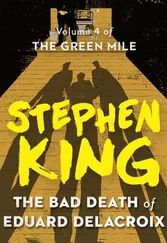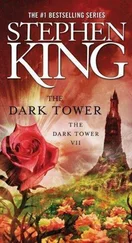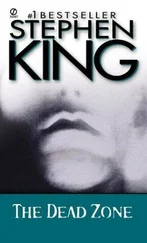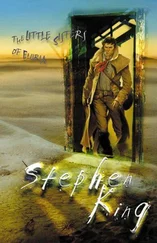Stephen King - The Plant
Здесь есть возможность читать онлайн «Stephen King - The Plant» весь текст электронной книги совершенно бесплатно (целиком полную версию без сокращений). В некоторых случаях можно слушать аудио, скачать через торрент в формате fb2 и присутствует краткое содержание. Жанр: Ужасы и Мистика, на английском языке. Описание произведения, (предисловие) а так же отзывы посетителей доступны на портале библиотеки ЛибКат.
- Название:The Plant
- Автор:
- Жанр:
- Год:неизвестен
- ISBN:нет данных
- Рейтинг книги:5 / 5. Голосов: 1
-
Избранное:Добавить в избранное
- Отзывы:
-
Ваша оценка:
- 100
- 1
- 2
- 3
- 4
- 5
The Plant: краткое содержание, описание и аннотация
Предлагаем к чтению аннотацию, описание, краткое содержание или предисловие (зависит от того, что написал сам автор книги «The Plant»). Если вы не нашли необходимую информацию о книге — напишите в комментариях, мы постараемся отыскать её.
The Plant — читать онлайн бесплатно полную книгу (весь текст) целиком
Ниже представлен текст книги, разбитый по страницам. Система сохранения места последней прочитанной страницы, позволяет с удобством читать онлайн бесплатно книгу «The Plant», без необходимости каждый раз заново искать на чём Вы остановились. Поставьте закладку, и сможете в любой момент перейти на страницу, на которой закончили чтение.
Интервал:
Закладка:
Before meeting with Rodney—who is one gay cowpoke, pardner—I went back down to the mailroom, stepping over a twisted, twined mat of ivy branches and stems to get there. It's possible to do that without actually treading on any, for which I am grateful. The last thing I needed at three in the afternoon was the pained scream of a psychic ivy suffering a bad case of stompie-toes.
Mostly, Zenith appears to be growing up the wall on either side of the janitor's cubby, creating a complex pattern of green and brown, through which the cream-colored wallboard shows in pleasant geometric patterns. I didn't hear it sighing this time, but I could swear I heard it breathing, warm and deep and comforting, just within the range of audibility. And again there was a smell, this time not coffee but honeysuckle. I also have fond childhood memories of that smell; it surrounded the library where I spent a great many happy hours as a boy. And as I passed, one strand of ivy reached out and touched my cheek. Not just a touch, either. It was a caress. One great thing I have discovered about keeping a diary: I can be honest here if nowhere else, honest enough in this case to say that that leafy touch made me think of Ruth, who used to touch me in just that way.
I stood perfectly quiet while that delicate bit of stem slipped up to my temple, traced my eyebrow, and then fell away. Before it did, I had a very clear thought, and I'm positive it came from Zenith rather than from my own mind:
Find the purple box.
Find it I did, exactly where the Barfield woman—or her Ouija board —said I would, way back in the corner on the bottom shelf, behind a pair of huge padded mailers oozing out flakes of stuffing. It is the sort of box that medium-grade typing paper comes in. The sender—one James Saltworthy of Queens—simply taped the box shut and slapped a mailing sticker over the ragland bond brand name and logo. His address is in the upper left-hand corner, on another sticker. I think it's sort of amazing that the post office accepted such a package and managed to get it here, but they did, and now it's all mine. Sitting on the floor of the mailroom, smelling dust and honeysuckle, I broke the tape and lifted the box-lid. Inside is about four hundred pages of copy, I should judge, under a title page which reads
THE LAST SURVIVOR By James Saltworthy
And, down in the far corner:
Selling North American Rights Literary Agent: Self Approx 195,000 Words
There was also a letter, addressed this way: TO THE EDITOR—OR WHOEVER SENDS THESE THINGS BACK WHERE THEY CAME FROM. As with the Tina Barfield letter, I have attached it. I'm not going to critique or analyze it here, and there's probably no reason to do so at all. Writers who have been trying to get their books published over a long period of time—five years, sometimes ten years, and once in my experience a full fifteen years which encompassed ten unpublished novels, three of them very long—share a similar tone, which I would describe as a thin coat of self-pitying cynicism stretched over a well of growing despair and, in many cases, hysteria. In my imagination, which is probably too vivid, these people always seem like miners who have somehow survived a terrible cave-in, people trapped in the dark and screaming Is there anyone out there? Please, is anyone out there? Can anyone hear me?
What I thought as I folded the letter back into the envelope was that if ever there was a name that sounds as if it should belong to a writer, that name is James Saltworthy. My next thought was to just put the top back on the box and leave whatever was under the title page, good or bad, until I got home. But there's a little Pandora in most of us, I think, and I couldn't resist a look. And before I knew about it, I'd read the first eight or nine pages. It reads that easily, that naturally. It can't be as good as it seems to be, I know that, or it wouldn't be here. And yet a part of me whispers that that might not be true. He is serving as his own agent, and writers who do that are like self-defending lawyers: they have fools for clients.
The pages I read were good enough so I have burned to read the rest ever since leaving the office; my mind keeps going back to Tracy Nordstrom, the charming psycho who is apparently going to be Saltworthy's main character. There's a war going on in my head, the armies of Hope on one side, those of Cynicism on the other. This conflict, I feel, is going to be decided in the two hours between now and midnight, when I really must turn in. But before leaving the typewriter chair in the kitchen for my reading chair in the living room area of my apartment, I must add one more thing.
When I stood up with Saltworthy's purple box under my arm, I noticed that Zenith the common ivy has burst through the wall between the janitor's closet and the mailroom in at least three dozen places. There are ten steel shelves mounted on that wall, plain gray utilitarian things which are now perfectly empty—in my post-Ruth orgy of work, I cleaned them out completely, without finding a single thing even remotely worth publishing. In most cases it's not even incompetency—boring narration and dull prose—but outright illiteracy. Not one but several of the manuscripts which filled those gray shelves were scrawled in pencil.
But all that's to the side. My point here is just that I could see that wall, because the stacks and jumbles of boxes, bags, and mailers are gone. The cream-colored sheetrock has now been pierced by a galaxy of green stars. In many cases the tips of the ivy's branches have only begun to penetrate, but in others, long and fragile snakelets have already slithered through. They are growing along the empty steel shelves, meeting, twining, climbing, descending. Staking out new territory, in other words. Most of the leaves are still tightly furled, like sleeping infants, but a few have already begun to open. I have a strong suspicion that within a week or two, a month at the outside, the mailroom is going to be as full of Zenith as Riddley's cubbyhole is now.
Which leads to an amusing but perfectly valid question: where are we going to put Riddley when he comes back? And what, exactly, will he be doing?
Enough. Time to see exactly what's in James Saltworthy's box.
April 2, 1981
Dear God. Oh my dear God. I feel like someone who has dipped his fishing line into a little country brook and has managed to hook Moby Dick. I had actually dialed the first five digits of Roger Wade's number before realizing that it's two o'clock in the fucking morning. It'll have to wait, but I don't know how I can wait. I feel like I'm going to explode. Names and book-titles keep dancing through my head. The Naked and the Dead, by Norman Mailer. Raintree County, by Ross Lockridge. Peyton Place, by Grace Metalious. The Godfather, by Mario Puzo. The Exorcist, by William Peter Blatty. Jaws, by Peter Benchley. Different kinds of books, different kinds of writers, some good, some only competent, but all of them creating a kind of bottled lightning, stories that millions of people simply had to read. Saltworthy's Last Survivor fits very neatly into this group. No goddam doubt about it. I don't think I've found a Masterpiece, but I know I've found The Next Big Thing.
If we let this get away, I'll shoot myself.
No.
I'll walk into Riddley's closet and tell Zenith to strangle me.
My God, what an incredible book. What an incredible story.
February 19, 1981
Editorial Staff and/or Mailroom Crew Zenith House 490 Park Avenue South New York, NY 10017
TO THE EDITOR—OR WHOEVER SENDS THESE THINGS BACK WHERE THEY COME FROM,
My name is James Saltworthy, and the attached albatross is a book I wrote. Last Survivor is a novel that was set five years in the future when I wrote it in 1977, and now by God that future's almost here! Looks like the joke's on me. This novel, which has been well-reviewed by both my wife and my department head (I teach 5th grade English at Our Lady of Hope in Queens), has been to a total of twenty-three publishers. I probably shouldn't be telling you this, but since Zenith House is this manuscript's final stop on what has been a long and exceedingly dull train-ride to nowhere, I have decided to “let it all hang out,” as we used to say back in the Sexy Sixties, when we all thought we had at least one major novel in us.
Читать дальшеИнтервал:
Закладка:
Похожие книги на «The Plant»
Представляем Вашему вниманию похожие книги на «The Plant» списком для выбора. Мы отобрали схожую по названию и смыслу литературу в надежде предоставить читателям больше вариантов отыскать новые, интересные, ещё непрочитанные произведения.
Обсуждение, отзывы о книге «The Plant» и просто собственные мнения читателей. Оставьте ваши комментарии, напишите, что Вы думаете о произведении, его смысле или главных героях. Укажите что конкретно понравилось, а что нет, и почему Вы так считаете.












